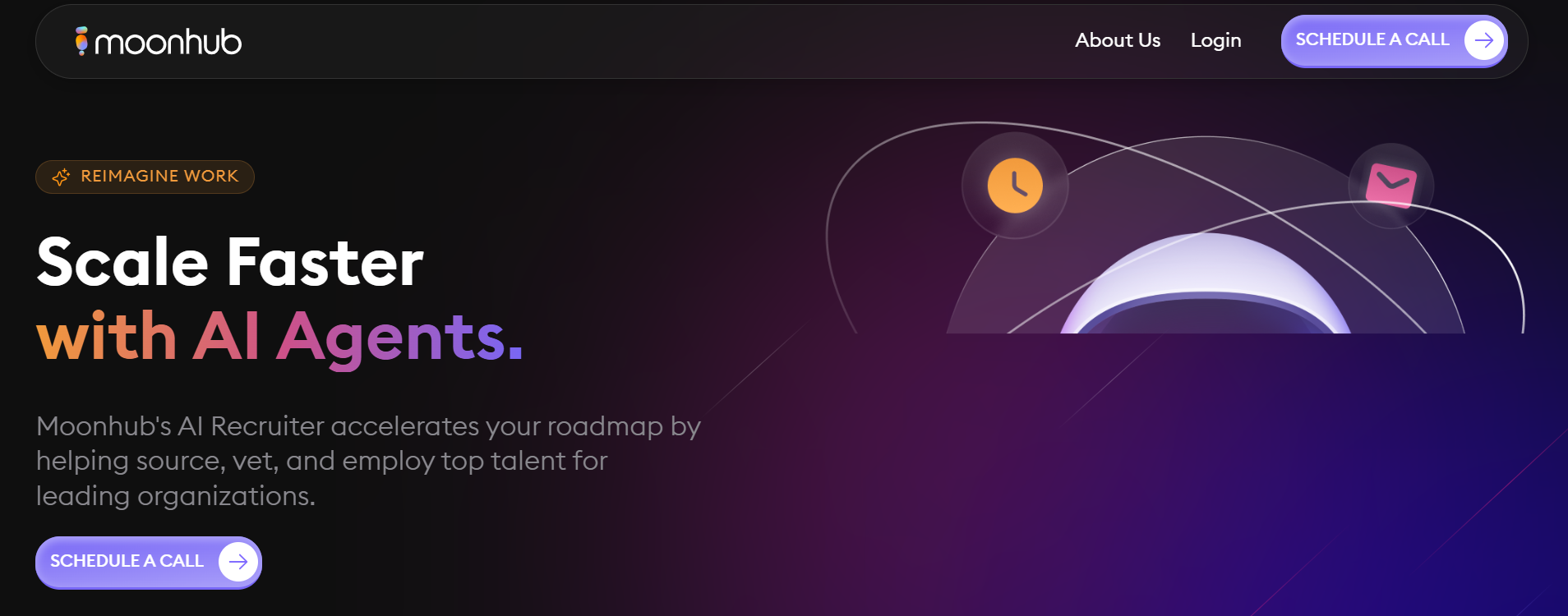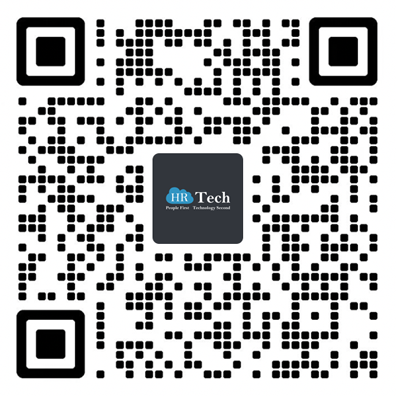硅谷
Jason Stirman:打造没有管理者的创业公司
注:Jason Stirman也可以说是一个离经叛道的人,卸任twitter CEO之后,他重新投入创业,打造了Medium,试图再次改变人们交流的方式。他说:“传统管理方式不适合我。”他认为传统的管理方式缺乏人性化。在Twitter的经历虽然教会了他许多,但同时他也深感疲惫。而Medium是一个新的团队,对Stirman来说也是一个新的机会:一个没有经理的公司你敢想象吗?
Ev Williams初次在Twitter工作后,他找到了住在德克萨斯州的Jason Stirman。“你该出来活动活动了,”Williams对他说,“Twitter大有前途,你一定要加入我们!”但是Stirman可不是那么容易被说服的人。“我告诉Williams,‘你要我离开这个舒服的地方就为了一个只能写140字的短文然后点击发送就完事的东西吗?’我觉得这个想法有点不切实际。”Stirman描述当时的谈话说道,“然后Williams说了一番话,令我此生难忘。Ev正视着我的眼睛,充满信心地告诉我‘如果我们成功了,我们势将改变整个世界的交流方式。’当时我在心里想,‘哇好小子,我佩服你的勇气和信心,但这事我还是觉得不靠谱。’”虽然Stirman最后没有答应Williams的邀请,但他也承认就在拒绝Williams的那一刹那,他内心已经后悔了。18个月之后,当Twitter发展到50多名员工时,Stirman加入了Twitter。
第二次,Stirman学聪明了,当他看到跟着Williams创业的机会再次出现时,他毫不犹豫地选择了加入。在Twitter工作了几年之后,慢慢地他发现原来的创业团队悄然不见了,Williams带着一帮人又开始忙碌创立新的公司,Obvious Corporation,试图实现一个新的创新突破。“于是,我辞掉了Twitter的工作,加入这群人中间,我充满期待地问道,‘好吧,伙计们,这一次我们又要干什么大事情了?’Ev看着我,然后他说,‘呃,我也不太确定,大概是重建互联网?’”虽然Stirman当时不确切明白Williams的意思,但是听上去很有意思。然后,他们一起弄出了Medium,一个誓要改变人们交流方式的内容发布平台——是的,你没看错,又一次改变。
Medium不仅仅试图改变了数字出版(digital publishing)方式,它也改革了公司的运营方式。作为Holacracy理论(猎云网注:全体共治,一种全新的企业结构理论)最严格、最忠实的实践者,Medium公司尝试了一种彻底摒除管理的工作环境,所有人只需要专注于完成自己的任务。对于公司所呈现出来的空前未有的自由氛围、蓬勃朝气和高效的生产力,Stirman在震惊之余更是惊喜万分。但是,公司也并不是方方面面都需要采用Holacracy式的结构来收获盈利。至少在Twitter的这几年工作经历让Stirman学会不少管理及处事的技巧。下面,我们一起来听听Stirman的经验分享。
“我不赞同传统的管理模式。”
Stirman在Twitter有过两年时间的团队管理经验。但是在那段时间里,无论他怎么努力,他总能感觉到一丝不对劲。不断地在上司与同事这两种身份之间切换,让他感到一股无形的压力。为此,他读过各种管理类的书籍,也把其中的箴言教训牢记于心。比如,和下属保持距离,不该知道的事绝不告诉任何无关的人员,要求他们时刻认清任务中的困难,平等奖励等等。太多太多的规矩,Stirman甚是反感。
“从管理的角度出发,他们认为员工既是资源——就好比如何将员工的价值最大化。”Stirman说道,“但是在我的理解中,资源就是天然气或者煤炭这一类的东西。用这种认知方式去对待一个有生命的人,这是与人性相悖的。”
因为对传统的管理方式感到失望,所以Stirman决定跳出常规,换一种方式管理他的团队。他开始单独找团队成员交流,谈谈他们最近的生活状况,而非他们的工作和效率。“当你和你的某个下属面对面坐着时,问一句‘最近过得怎么样?’远比‘是什么影响了你最近的工作状态?’更容易打破僵局拉近俩人的距离。”Stirman表示。
“一旦有问题出现,我的第一反应不是问题本身,而是出现问题的人。这么以来,问题很快就迎刃而解。我不得不说,这就像绝地武士的控心术一样神奇。”
接着,他开始利用与员工共进午餐,或者一起喝咖啡、一起开怀畅饮等机会,趁机聊一聊他们的近况。比如妻子的工作有着落了吗?家里的房子装修好了没有?等等。这些问题不可避免地会影响到员工工作时的状态。Stirman解释道,但是一旦你开口问了,他们便会如释负重。
这种人性化的管理逐渐地发挥起作用,甚至超出了预期。“我有次听说我的团队中有人跟另外团队的某个员工关系不和从而导致了整体工作效率低下——仅仅只是因为他们互相看不顺眼对方。我想,如果我能让他们俩一起心平气和地坐下来谈谈工作以外的事情,他们的关系会不会得到改善呢?于是我找来了他们俩,一开始只是茶余饭后的闲谈,接着他们似乎找到了一些共同点,最后他们已经开始共同讨论怎样解决团队中的问题了。曾经差点让我彻底难眠的问题,竟然在日常的聊天交流中如此顺利地解决了。我忍不住想,我了个去,这招够牛B的!”
传统管理要点之一:保护你的团队免受外界因素的影响。但是Stirman发觉这根本行不通。“我承认,传统管理学和我的所有导师都告诫我应该把我的团队与外界隔离起来,这样有助于他们专心工作,提高效率,乃至保持身心愉快。”他说道,“真是这样吗?可为什么我发现他们反而变得愤怒,变得困惑,变得迟钝了呢?所以,我尽量让他们知道得更多,当他们知道的越多,他们反而更有干劲了。”
小有成就之后,Stirman打算再尝试一下其他的管理理论。“没人真的尝试过这些更好的管理方法,传统的方式太过依赖于上下级之间的管理关系,”他说道,“但在我内心深处我仍是一名工程师。我会试着以工程师的眼光来看待管理,就像分桶测试(A/B test),采用尽可能多的数据和结果来辅助决策。”在尝试新的管理方法过程中,他无意中发现了《Your Brain at Work》一书,通过此书,Stirman了解到了一种新的管理方法——SCARF。
SCARF代表了地位(status)、确定性(certainty)、自主性(autonomy)、关联性(relatedness)和公平(fairness),是由这五个英文单词的首字母缩写组合而成。“一般来讲,倘若人们受到这五个因素之一的激励,他就会对整个团队表现出忠诚。”Stirman解释道,“作为一个管理者,你需要弄明白每个员工的激励因素是什么,然后给予他们相应的奖励措施。很多管理者认为,‘我们应该一碗水端平地奖励每个人因为大家都很努力’,但是这并不能有效地激励到每一个个体。”SCARF的具体假设如下:
“所以,事实就是,有的人非常关心其他人,有的人则对自己之外的人和事完全不放在心上,”Stirman继续解释道,“只要我清楚地了解我的团队中每个人的需求和特点后,我就能轻而易举地各个击破。所有的小问题和个性冲突都会自然而然地从我的团队中消失不见。”
Stirman一直希望打破等级,用合作的智慧来管理团队,这样的理念为他加入Medium铺平了道路。在Medium的团队中,明确的交流、激励还有责任是保证整个团队不断前进的隐形因素。
从零开始实现“全体共治”
Medium自一年前开始采用Holacracy理论模型的管理方法。“我只能说,全体共治,这是我到目前为止见到的最好的公司组织架构和管理方式。”Stirman对Holacracy管理模式给予了高度的评价。其表现出的极简主义和逻辑性让Stirman尤其着迷。“这就好比是一个为你的公司而设计的一个操作系统,让工程师出身的我深深地爱上了这个系统。事实上,Holacracy管理模式刚发布了4.0版本的组织架构。因此我们公司也是紧随其后——管理模式会像iOS系统一样更新迭代。”
·没有管理人员,自主最大化
·有机扩展,当某项工作越来越繁重时,招人
·解决压力。发现员工正在面对的问题,写下来,有条不紊地逐一解决
·明确每一件事——从各部门的休假制度到决策制定
·分配决策权,避免从众
·杜绝一切影响员工工作状态的外部影响因素
“我们的组织结构完全始终围绕公司的发展目标而展开,”Stirman进一步解释道,“我们人员之间没有上下级之分,有的只是工作群之间的上下层关系。”举个例子,阅读与发现(RAD)工作群的人员主要负责网站的阅读体验,他们隶属于产品研发群,后者又从属于创新与反馈群——一个专门负责内容创建过程的工作群。在这样一个嵌套的环节里,产品研发群可以迅速获悉其子群的反馈结果,从而引导产品向着正确的发展方向前进。各个工作群中的每一个成员都有自己的任务目标,同时他们的任务又与衔接群的任务目标息息相关,最后共同实现公司的整体目标。因此,无论何时,大家都有一个共同的前进方向。
“Twitter的发展目标改变过几次,从设计一款出色的产品到产品宣传再到使之成为公司的一项稳定业务,甚至也有可能改变世界,”Stirman说道,“在这样的快节奏下,我最终感到自己的工作与高层管理的发展理念越走越远,我的团队成员亦有此体会——我们真的跟不上领导们的思维步伐。”
要解决这种困境,不能只把焦点放在员工身上,而是得关注员工在公司分担的角色任务。每一个工作群都有一名“带头联系人(Lead Link)”,由他来决定这个群的职责与工作任务。话对这么说,但其实大多数时候,只要个人能力许可,他可以同时胜任多个角色的任务。比如Stirman他自己既是“人事操作(People Operations)”的带头人,也是“内容管理者(Word Master,就是在遇到文章标点符号或者大小写等文字问题时做最后决定的人)”。这样一来,人们便可以充分发挥自己各方面的才能。
像这样的以角色为中心的组织结构同时也促进了创意与战略的多样化,也严格地控制了即将上线的产品。比如,“产品战略”这一职能角色,其职责是决定产品的功能特性,目前由Ev Williams一个人担任。但是,在类似RAD这样的团队里,决定创意的实施往往不是一个人,而是一群人。
当某个角色的任务过于繁重时,我们可以发展出一个拥有多个人员的特定工作群来共同分担任务。“在传统的公司里,组织架构几乎不以工作内容的改变而改变。”Stirman说道,“许多公司都是这样,他们习惯把新的工作模式硬塞到现有的组织架构中,结果却搞得一团糟。”
强调自然发展的另一个好处是可以分散权利。在Holacracy体系中,个体在没有管理者监督的情况下独自运作,根本在于几乎每个人在其特定的领域有相应的决策权。因此当所有事情都尽可能地明确详细之后,大家自然会清楚谁有权利做哪件事。“把权利分散到多数人的手中带来的好处就是集思广益,共同决策,促进公司不断发展,”Stirman强调说,“这种架构方式可以让公司更快速地发展,积极尝试新事物和及时做出调整。你不必再为了做一件事情浪费几个星期甚至几个月的时间苦苦等待高层管理者的签字,就像Holacracy理论中所述,‘我们要聘请最优秀的人才,然后相信他们,让他们替我们做决策。’每时每刻,人们都在做决定,他们控制着公司的某一部分,然后执行这些决定。也许有人会做出错误的决策,但是这种方式带来的整体优势远远大于其潜在危险。即使真的出现错误,在这种方式的运作下你依然可以迅速地回到正轨。”
在会议中制造一些“问题”也可以促使人们快速地做出决策。Stirman对此的定义十分广泛,用他的话来说就是“介于‘是什么’和‘可以成为什么’之间的任何区别”。照这个说法,‘问题’可以是消极因素(例如,我没有时间做这个项目或者我的椅子坐着非常不舒服等等),也可以是积极因素(例如,我对未来有一个设想……)。在问题讨论会上,所有提出的问题都会得到解决,每个与会者可以选择分享自己的问题也可以放弃。于是,每个人在遇到问题或者看到机会时都会有机会站出来发表自己的意见。
“Holacracy管理理念和传统管理理念之间的差异在于,当下层员工和上层领导坐在一起讨论时,每次都是上层领导在讨论他们的问题,然后要求下层员工解决这些问题,”Stirman耸了耸肩继续说道,“没人会在乎一个小职员在工作中遇到的问题,也不会在乎他的想法和建议。但是他们却要日日夜夜地解决别人的麻烦,有时候甚至根本不理解也不想去理解解决的意义何在。”
在我们上述提到的问题讨论会议中,一个经验丰富的引导者会列出一个清单,其中包罗了人们提到的所有问题,然后剩下的时间就是尽力解决问题。但是这也并不意味着一定要解决重要问题。我们只需要找出下一步的正确解决方案。“如果我提出有一个键应该是绿色的而不是红色的,那么在传统的会议上这个问题可以被讨论几小时、几天甚至几星期,直到有一个明确的结果,”Stirman说道,“但是在我们的问题讨论会上,我们得出的一个可行的方案是找个时间由我来单独跟我们的视觉设计师讨论这个问题。”
对于Stirman来说,早在他了解到Holacracy理论之前,他就知道如何发现问题,但是却总是难以解决。“一旦你察觉到问题所在,你就会开始寝食难安。而现在,只要发现任何问题,我都会马上写下来。如果我不能独自解决,那么我就把问题带到下一次的问题讨论会上交给我的同事们一起解决。多亏了这些会议的帮助,你总是可以更好地解决问题。”
怎么对待Holacratic?
和传统的管理框架相比,Holacracy模型有许多可取之处,Stirman强调。他自己对此有着深切的体会。“当我回想在Twitter担任经理的时候,我始终感到惶惶不安。可是我的团队其实根本不存在那么多问题,”他说道,“然而,我的上司依然在他管理的团队之间忙碌不已。没人有那闲工夫和精力来解决我的问题。而现在,在Holacracy管理模型的指导下,显然人们变得更加快乐了,他们能够感到自己被倾听,能够感到自己和整个公司之间的联系。”
现在, 是不是对Holacracy理论有点心动了呢?如果你想在已有的公司架构之上引入Holacracy管理模型的精髓,那么一定不要错过Stirman给出的重要建议:
Stirman在Twitter工作时用心倾听下属的个人情感和日常问题是一个非常重要的例子。这无疑为释放压力创造了一个可靠空间。实际上,Stirman一直希望自己的这种更加人性化的减压方式可以得到认可和推广,这样人们就会知道如何解决这些压力而不是任由负面情绪影响工作状态。
Holacracy鼓励人们说出自己的压力,在会议上或者会议之外解决问题。考虑到公司内部大大小小的会议不断(有时候会议多得离谱),这个建议变得尤为重要。问题讨论会议的意义正是在于解决在其他会议上难以解决的问题。在这个会议上,人们只需要提出自己无法解决,需要别人帮助的问题。
建立共同的责任感可以营造一个更加团结紧密的工作氛围。除了在报告中说明公司的运营现状,Stirman还希望可以在他自己的任务清单中也列入团队成员的任务和关心事项。这不仅是对他人的负责,同时也能减少他们被管理的压力。“在Twitter,人们有一种共识,那就是我的工作报告只需要完成对团队工作的监督,而我只需要对我的上级负责。但其实仅仅这些内容提供不了多少帮助。
大多数时候,你明白你的领导掌握着你的职位和工资的生杀大权。但是我希望我可以坐下来和我的手下这样谈话,“来吧伙计,让我告诉你在Twitter当一个经理有哪些职责。这份清单上面罗列了我所有的决策权。我非常希望我可以打破权利阶梯,成为一个更加合格的领导者。”
与此同时,在你的报告中写上你自己的问题,期待别人是否可以帮你一起解决也是一个十分有用的主意。“在Twitter的时候,我总是肩负着团队的所有问题,我像所有的管理者一样,”Stirman继续说道,“我是多么地希望我可以有更多的权利帮助他们解决问题,同时也有包括我自己的。我也希望我可以和他们多交流,多发现一些潜在的问题,然后全部解决,让我们的工作更加出色。到最后我甚至不敢再用‘我不知道’这四个字去回答他们的问题,但是看看我的团队,他们是那么的出色,那么的有才华,敢于挑战任何难题。撇开工作不谈,他们随时随地都愿意为你提供自己的帮助。他们迫不及待地想展现自己的才能,成为众人眼中的英雄。到最后,作为他们的管理者,我得到了他们的信任,因为我从不回避任何一个我无法回答的问题。”
用Holacracy的理念来招聘
鉴于每一个Holacracy体系中的员工都有部分的决策权,你可能会觉得这个招聘流程一定很独特,或者至少会相对复杂一点。但是Stirman则表示完全没必要弄得这么麻烦——即使是一个十分传统的公司也可以采用Holacracy的方式来招聘新员工。
“在面试的时候,你很容易就能看出一个人是否会主动解决问题或者承担项目——还是说他们更适合被动式的分配任务。这两种类型的员工都挺好,大多数要么属于前者一类,要么属于后者,”Stirman说,“所以,我一般会问,‘请描述一个让你感到十分兴奋的项目。’主动型的人会从他们如何发现问题开始讲到他们最后怎么解决。另外一类人则会说,‘我的经理有一次问我,能不能做一个……?’答案立刻见分晓。不过在我们这种类型的团队里,我们更欢迎主动型的人才。”
千万不要低估文化适应在招聘中的作用。这是Stirman一直特别强调的一点,尤其是你准备进一步朝着Holacracy理念深处发展。“你得确保你招聘的人跟你很合得来,”Stirman说道,“很多人都喜欢招聘高能力的员工,但往往很难融入到你的企业文化中。在我看来,这是最失败的一种招聘——比招一个能力平平的人还要糟糕。你对他们的能力很满意,他们渐渐地会掌握权力,聚集影响力,深入到你的技术、开发和产品各个方面。接着,当所有的蜜月期过去之后,各种各样的问题就开始浮现了。”
不足之处?
“理论上来讲,Holacracy体系的规模应该比传统的组织结构更容易扩展,原因在于Holacracy体系中的工作群可以根据公司的工作内容随时调整。”话虽这么说,但Stirman也表示一切还未得到实践,因为目前Medium仍只有40名员工。
在实际操作中,Medium的团队已然发现了这个体系中存在的部分不足之处:缺乏有效的奖励和反馈机制。“通常给员工工作的反馈、指导以及分配工作内容,这些都是经理的职责,并且所有这些事情对于营造一个良好健康的工作环境至关重要。当你卖力工作时,你需要得到认可和激励。”Stirman说道。
即便如此,Medium的创业团队依然决定采用Holacracy的方式去解决这个问题。“我们设计了一些新的角色,主要负责定期给其他人提供工作反馈,”他接着解释道,“看上去我们正在打破与传统管理之间的界限,但其实这些新的角色并不关心人们的工作,它更像是一种指导关系,而非管理关系。”
我们把这些角色命名为“领域领袖(Domain Leads)”,由各个工作群中经验丰富的人员担任,比如设计师和工程师等等。除了指导工作之外,他们也会分担大部分的人事招聘工作。他们的工作与决定工作群任务的“带头联系人”的工作紧密联系,共同评估员工的绩效。“领域领袖只对人负责,而不对工作负责,”Stirman强调,“我们正在尝试这种新的管理方法。”
为了更完美地实施这一新举措,Medium团队还引入了“击掌表扬机制(High Five Machine)”——其实就是一个简单的留言板,每个人都可以在上面写下对同事的赞赏,然后分享给所有小组成员。这是在Holacracy理论基础上的创新,是实践过程中的灵活调整。
“我们在不断地学习,对于目前的探索我感到十分满意,”Stirman最后说道,“未来是个未知数,但是当我听到各种教条,或者任何的管理法则时,我只想说‘无聊’。我们也许在做一些与众不同的事情,也正是敢于打破常规才让我们有机会见识到更多的新事物。”
Source:firstround (编译:小白)
扫一扫,关注“HRTechChina",聆听人力资源科技的声音!
硅谷
一毕业就失业?想打破这个怪圈的 Knod 获 620万美元融资
//
Knod是一家base在美国盐湖城的教育科技公司,它希望做到的事情是:与教育机构和雇主公司合作,弥补大学教育(Education)和雇佣机会(Employment) 之间的巨大鸿沟,打造以就业为明确目标的学位教育。
Knod 和大学及企业合作,提供线上线下相结合的、基于公司项目的、以培养职业技能为目的的教学,结业后提供本科或MBA 的学位证书,目前授予的学位包括信息技术学士、国际商务学士、商务管理MBA等,学费在1万美元左右,与美国大学动辄三、五万美元一年的学费相比,Knod 打的显然是价廉物美的招牌。
2014年以来,已经有38名肯尼亚学生从 Knod 与一所马来西亚大学合作的项目中毕业。从2015-2016学年开始,Knod 会和美国阿拉巴马州的一所函授大学———安德鲁杰克森大学(New Charter University)——合作,推出学费在13000美元以下的商务学士学位。
Knod 在教学的诸多环节中运用了科技产品以增强教学效果。举例来说,系统会根据每个学员的偏好为他们分配项目,做到个性化教学;在做项目时,学员会结成小组,为一个真实的公司工作,合作公司还会为小组配备一名项目经理进行指导,而这一切都会在 Knod 开发的在线协作平台上完成。
Knod 刚刚宣布,公司已经获得来自Epic Ventures, Impact Investment Leaders 等机构的 620万美元融资。接下来,Knod 将寻求与英国的德比大学、西班牙和拉丁美洲的一些大学合作。
原创文章,作者:小天
硅谷
半数美企用手机监控员工 上班族变“囚徒”
[摘要]在美国等欧美企业,许多企业会为员工集体采购商用手机,用于办公使用,在这种情况下,公司就拥有了一定的话语权。
根据美国彭博社报道,超过一半的美国企业和老板,会对员工当前位置进行监控,一些监控甚至覆盖了下班时间。一些员工愤怒表示,智能手机让上班族变成了脚踝上佩戴电子监控装置的“囚徒”。
众所周知,在美国等欧美企业,许多企业会为员工集体采购商用手机,用于办公使用。而在智能手机的使用方面,公司或者老板也拥有一定的话语权。
根据美国“Aberdeen集团”去年的研究报告,在存在员工外派出差的美国企业中,54%的公司曾经实时监控员工当前位置,而在2012年,这一比例还只有37%。
当然,老板监控员工位置,存在管理上的理由,比如可以提升员工安全、提高工作效率,根据GPS数据分析结果,可以节省差旅费或者燃油开支。一些员工也不再可能利用公司汽车用于私人用途。
但是在利用手机监控员工位置方面,一些企业和老板,已经超越了个人隐私的雷池。
美国女子阿瑞丝(MyrnaArias),效力于电汇企业Intermex,公司要求她在手机(智能手机由公司统一发放)上安装一个名叫Xora的软件。这样她在硅谷中部出差时,公司可以随时掌握她的位置。
然而,阿瑞丝发现,即使在她下班之后,公司也在继续监控位置。她随后愤怒卸载了软件,但是随后被公司解雇。
她将公司告上了法庭,要求对方因为工资损害和侵犯个人隐私赔偿50万美元。
阿瑞丝认为,全天候的位置监控,让自己成了脚踝上佩戴电子装置、被警方24小时监控的假释嫌疑犯。根据指控,她所在的公司要求员工24小时开机,而Xora会在后台随时提交位置数据。
她的律师表示,如果有合法的理由,企业和雇主可以对员工位置进行监控,“我们的诉求,是企业没有一天24小时监控员工位置的权力。”
这些随时被老板监控位置的上班族,相当于成了电视台真人秀节目中随时被拍摄的主角。
以往的审判案例显示,上班族对于工作环境的个人隐私权利,没有太高的期望。在现实中,老板可以随时查看个人邮件,另外如果企业拿出明确的监控理由,也会获得法官的支持。
美国媒体指出,员工的下班时间必须得到足够的尊重。加州的劳工事务律师Lauren-Teukolsky表示,在下班之后,员工有权利保护自己的位置隐私。(晨曦)
来源:腾讯科技
硅谷
新应用 Shuffle 帮用户创建临时号码及电子邮件地址
近期一款名为 Shuffle 的新应用提供了简单的工具,帮助用户创建临时性的电话号码。用户可以使用这一电话号码,通过 iPhone 去打电话、发短信,以及接收语音邮件。Shuffle 将成为 Burner 的竞争对手,后者提供了类似的功能。不过,Shuffle 的功能还要更进一步。这款应用能创建电子邮箱别名,并通过这一别名将邮件收入主收件箱。
目前,许多用户只有一部手机,这部手机会被用于工作和家庭等许多场合。然而,用户可能会有许多联系人,例如公司同事,以及在 Craigslist 上联系到的二手商品卖家。向所有这些人提供自己的私人电话号码并不合适。在这种情况下,类似 Burner 的服务将带来帮助。
通过 Burner,用户将没有必要将自己的私人号码发布至网络,或是提供给一个刚刚认识的陌生人。该服务将帮助用户的手机创建虚拟号码,用户随后可以通过这一号码去打电话、发短信,而不必担心自己的隐私泄露。
不过,Shuffle 创始人克雷格·科列特(CraigCollett)希望这款工具还能保护用户的邮箱。他表示:“用户希望保护个人隐私,同时将工作与生活区分开。”
例如,用户可以针对工作、生活,以及不同的互联网服务设置不同的“shuffle”号码和电子邮件地址。如果某一号码被垃圾消息发送者获得,用户只需删除这一号码,随后就不会再被骚扰。
除了保护用户的隐私之外,类似 Shuffle 的服务还可以帮助旅行者在出国时创建本地号码,从而避免高额的漫游费。
来源:TC
硅谷
云应用加速服务Instart Logic获4300万美元D轮融资
云应用加速服务初创企业Instart Logic上周获得了4300万美元的D轮融资。
传统的内容加速网络(CDN)主要以静态文件的缓存为主,但随着网站的动态交互内容越来越多以及移动应用的崛起,这种模式已经难以满足应用加速的要求。
Instart Logic提供的是基于云的网站性能优化服务,可以针对移动和WiFi网络进行网站的性能优化。其解决方案采用移动优先的策略,组合了虚拟化、大数据、浏览器、分布式系统等多项技术来解决性能优化问题。
在加速策略上Instart Logic采取了化整为零的办法,它会将应用分割为若干小块而不是整个文件一次性下载,同时优先将重要的部分发送给用户,从而让应用可以及时与用户进行交互,然后在后台继续下载剩下部分。此外,Instart Logic还可以优化图像的尺寸、格式,进行压缩设置等以便进行静态优化。
据称2014年公司实现了5倍的业务增长,目前有超过400家网站在使用Instart Logic的服务,Staples、华盛顿邮报、必胜客、TUI Group、图库Shutterstock、Evite 及Nasty Gal等均为Instart Logic的客户。
此轮融资由Four Rivers Group与Hermes Growth Partners领投,原有投资者A16Z、KPCB及Tenaya Capital等参投,融资所得将用于人力及研发力量扩充以及欧洲等地区的国际化扩张。此轮过后其总融资已达9500万美元。
本文参考了多个信息来源:businesswire.com、bizjournals.com
硅谷
这家就业网站希望你抛却朝九晚五的生活,去热带岛屿上工作一年
我们都梦想去冒险,幻想有一天自己可以摆脱单调的日常工作,去一个遥远的地方,那里有全新的事物和环境等着我们去探索。
然而即便这样的机会到来,可能会出现的一些不确定因素也会阻挡我们冒险的脚步,其中最大的不确定因素通常是就业问题。在那里我能够找到工作吗?如果我不喜欢那份工作怎么办?就算工作不错,如果我无法适应那边的食物或者无法克服文化障碍又该怎么办呢?这些问题似乎很可能使一场冒险变成一场灾难,使你失业、破产,被困在一个人生地不熟的地方。
为了给未来的冒险家减少顾虑,爱沙尼亚一家年轻的创业公司试图帮助他们平衡风险与收益。Jobbatical是一家就业网站,它的主要面向人群是希望在他国大展身手的技能型人才。目前,这家网站专注于提供与IT行业有关的临时工作,工作时长从3个月到6个月不等。
经过六个月的试运营,Jobbatical已经向申请者提供了位于几十个国家的400多份的工作选择。网站创建人Karoli Hindriks称网站就业信息供不应求,在Jobbatical网站社区有数千位求职者。该网站上典型的雇主是创业公司和社会企业。这家网站拥有600家雇主的账户,但并非所有的雇主都发布了招聘信息。
亚洲成为Jobbatical早期用户选中的主要目的地。新加坡有很多职位空缺,其次是香港,而马来西亚是另一个热门选择。该网站还提供位于韩国、菲律宾、泰国、越南、印度和印度尼西亚等国的工作。
Hindriks说:“当你正坐在北欧或加拿大的某个地方时,能够在一个热带岛屿上的一家创业公司工作简直就像一场梦。”
虽然亚洲似乎很乐意聘请海外人才,但是当地专业人才却不愿尝试在Jobbatical上找工作。排名前两位的需求人才的国家是美国和巴西,欧盟尤其是北欧居于第三位。相比之下,大多数亚洲文化趋于规避风险,接受国外临时工作的创想仍是一个需开发的新前景。
但是Hindriks认为这种观念正在慢慢改变。她将Jobbatical网站比作婚前约会,它允许雇员在做出更重大的决定前去尝试新的国家和新的工作。她说:“对于求职者来说,很难立即决定要搬到一个新的地方长久居住,而商定的临时工作时间可以给求职者一个缓冲的时间。”
是希望寻求潜在的长期合作伙伴还是只是出国走一走都取决于求职者本人。Hindriks称这两种情况她都见过,但Jobbatical还未有充分的数据显示新员工在最初约定的工作期限到期后会做出何种选择。
“对于我们来说,最主要的事情是始终以一定的头脑和技术来建构这个可以使科技人才周游全球的求职社区。亚洲是欧洲各公司想要入驻的活跃市场,而与此同时,由于欧洲商业团队中缺乏必要的专门技能,因此,亚洲的科技人才此时可以助他们一臂之力。”
然而谈到IT人才时,很多公司更倾向于选择外包。像Elance-Odesk和Freelancer这样的网站可以很容易地按照预算招聘外国人才。但是Hindriks认为Jobbatical扮演的是一个不同的角色。她说:“在很多方面,我们将自己定义为具有机载经验的Elance-Odesk。一些简单的任务可以远程完成,但如果有人加入帮助你建构产品,那么你会希望他加入你的团队,了解你正在研究的方向。若一家欧洲创业公司正在研发一款针对亚洲市场的产品或服务,那么引进人才所造成的麻烦要比从一开始就做错产品所带来的麻烦小得多。”
除了发布工作信息之外,Jobbatical还为雇主提供管理员共审查过程的初选名单服务。Hindriks说:“我们也正在研发签证和搬迁服务,这些都已纳入公司日程。”
在之前没有网络和任何参照物的情况下,申请海外工作是件令人沮丧的事情。经过大量筛选之后,我们才能在众多臭名昭著的英语教学演出招工广告和“付钱之后即可工作”的骗局中找到几条合法的招聘信息。甚至当这些少的可怜的真实信息出现时,你也不一定能在第一时间发现它。若没有网络的帮助,最好的选择莫过于先搬到那个地方,然后再找工作,但那确实是一场冒险的赌博。市场动荡的时机已经成熟,或许Jobbatical 正是启动新一代环球冒险家的新兴公司。
(via techinasia,译|快鲤鱼,转载请注明出处)
硅谷
Breather为商务人士预约小型私人办公场所,已获750万美元投资
Source:businessinsider (编译:孙媛)
注:Breather是一家致力于打造私人办公空间的新型创业公司。在创始人频繁出差经历中,发现了这一块市场空白。虽然对于商务旅客而言城市并不缺乏咖啡馆用于办公,而事实上,可以真正开发团队创造力的优质办公区域却少之又少。于是,在创始人Julien Smith的带领下,一家解决出差办公难题的创业公司应运而生。
对于那些经常性出差的人而言,找一家适宜的咖啡馆可真是个难题。
Julien Smith 对这种情况再了解不过了。Smith作为一个企业家,已经出了三本书,并且长期受邀进行公共演讲活动。“我经常出差,但是在咖啡馆内工作却感到效率很低,”Smith和《商业内幕》的记者如是说。“想要星巴克小憩一下简直不可能。”
为了解决这个问题,Smith和她的挚友Caterina Rizzo 创办了Breather——一家可以通过手机app来预约小型私人办公场所的企业。
Breather 的每个办公空间有500平方英尺左右,而且这些办公区域都坐落于写字楼之内。每小时租金为25美元至70美元不等,价格取决于所提供场所的大小及设施。
这些私人领域原计划有较大的适用面,既可以是讨论项目的洽谈室,也可以作为在疲惫的出差工作中让人小憩的咖啡馆。
“有时候你只是需要除办公室之外的一个空间,” Smith补充道。
举个例子来说,Splash是纽约的一家设计事件营销软件的创业公司,使用Breather的app为员工召开会议,培训项目或是休息租赁场所。
“随着合作成为趋势,在交流中桌子是和会议室是必需品,”Smith说,“私人办公场所成为奢侈品。我们这种能够让奢侈品成为必需品的能力非常具有价值。”
从2012年创立公司至今, Smith 和 Rizzo已经逐步扩张Breather ,在纽约、旧金山、波斯顿、蒙特利尔和渥太华已有超过80个独立办公领域。
Breather app的使用方式
我一打开 Breather ,一大片我周边的定位即刻就会映入眼帘。
我在纽约的Flatiron District预约了一个办公区域,位于距离麦迪逊广场公园的24号大街上。
App页面上的信息告知了我关于这个办公区域应需知的所有内容。
这个特殊的房间能够容纳10人,配备了沙发、桌椅、白板、笔、笔记本、瑜伽垫和免费WiFi。
每小时只要36美元。
当我抵达写字楼时,门卫将我送至2楼。在2楼我看到一个金属制成的附着键盘的类似于银行保险库的大门。我的预约时间一到,密码就出现在我手机的Breather app上,我一输入密码,大门就开了。
房间设计极佳,阳光能够洒满整个房间。
你能看到一系列关于创业和创新的书籍水平地挂在沙发后面的墙上。
同样也有一罐Tootsie Rolls(软糖名)放在屋内供会议者食用。
虽然我只是用这个办公室拨打几个电话,白板对我而言并不实用,但我觉得它一定会给进行头脑风暴的团队锦上添花。
另一边是桌子和几根数据线。
最让我吃惊的还是屋内竟然如此的安静,隔音效果出奇的好。
“隐私对于现代人而言尤为重要,创造力受其左右,”Smith 说。“这不是说我们讨厌合作,你看WeWork显然是合作引导成功的案例。保障隐私只是思考的一种方式。”
在房间的角落里你甚至能够找到一块卷起来的瑜伽垫。
Breather 在两轮融资中已获得750万美元的资金,可见其发展及其迅速。
虽然一开始Breather只是交易他们租赁出去的办公区域,但现在创始人们更是把 Breather看作是资产拥有者所享受的让专业设计师设计房间并且充分利用室内空间的机会。
“现在资产拥有者都会主动上门,”Smith说道。
你可以在应用商店里下载供iOS系统使用的Breather app,或者在Google Play上下载供Android系统使用的Breather app。
扫一扫,关注“HRTechChina",聆听人力资源科技的声音!
硅谷
Zenefits,年度独角兽会变成超级独角兽吗?
2013年的Snapchat之后,已经很久没有创业公司的增长像Zenefits这样疯狂了。
福布斯去年就把它列为增长最快的创业公司No.1。而过去的11个月里,Zenefits的估值又从5亿美元提升到了45亿美元。
如果要评选2015年年度独角兽,Zenefits也很难被击败。蹿升同样迅猛的Slack是去年年底跻身独角兽俱乐部的。而还未上线就融了2.2亿美元的新锐电商Jet题材太老,不符合2015年企业服务大热的主旋律。
Zenefits的估值很冷静
更为难得的是, Zenefits估值增长背后有着坚实的收入增长作为依托。2013年只有100万美元,2014年全年2000万美元,2015年预计是1亿美元。
可以用来参照的是2012年上市的Workday,年收入5亿美元,市值超过160亿美元。Box市值20到30亿美元,年收入大约3亿美元。Zenefits的同门师兄,YC的骄傲Dropbox,估值80亿美元的时候(2012年)年收入也不过2亿美元。
Zenefits面向企业是完全免费,从企业购买的各项服务中向服务提供商收取佣金。目前主要的佣金来源是商业保险。后者是一个真正的千亿美元的市场。根据2013年的数据,仅健康险一项,美国的人均保费就超过2500美元,其中很大一部分是企业支付的。
而且美国保险市场属于完全开放型的保险市场,根据SNL Financial LC的数据,2011年美国的各类保险公司合计达到了6296家。充分的市场竞争给了保险经纪足够的生存空间。美国拥有100多万的保险代理和经纪人,Zenefits的模式要颠覆的是他们,所以犹他州的保险监管机构去年封杀了Zenefits。
Zenefits针对的是中小企业,从几个人的Startups到规模千人的公司,目前已经有超过10000家公司在他们的平台上。而对手Workday和Salesforce的主要客户是大公司,Workday的订阅用户只有1300家。
这留下了大片的市场空白。
所以当被问到“Zenefits何时会成为估值100亿美元的创业公司时”,Palm Drive Venture(以下简称PDV)的Seamon Chan告诉36氪,“不会太久”。
Zenefits:企业版的Uber?
两年前,Seamon Chan在天使阶段就参投Zenefits。“我们一直在帮忙,C轮很多Big Name没能进来,而我们拿到了allocation(配额)”,另一位合伙人李一芃告诉记者。
Zenefits目前已经是平台了,一些更专业化服务,比如直接管理薪资、税务的SaaS,可以接入Zenefits,像一个插件一样优化某一个细分功能。
“但是这些信息(目前已经有至少10万员工的工资和保单信息)都会沉淀在Zenefits的平台上”,李一芃认为Zenefits是HR的操作系统,“让我们特别兴奋的是,Zenefits只在保险方面做了变现的尝试就取得了这么大成就,未来跟很多金融工具的结合还有无限的想象空间”。
不要忘了,Zenefits的CEO Parker Conrad曾经创办的两家公司都是金融相关的公司Sigfig和Wikinvest。这名哈佛的辍学生,曾经被自己创办的公司赶走,他的经历怎么听都像是能成一番事业的人。
一周前,一名同时拿到Uber和Zenefits工作Offer的年轻人因为Uber名气更大而有一些犹豫,在Quora上咨询大家的意见。Parker Conrad看到之后果断收回了Offer,“我觉得你还是去Google比较合适”。
这让这名略微发胖的创始人和咄咄逼人的Uber CEO Travis Kalanick有了更多相似之处。两人都创办过两家公司,都有名牌大学的辍学经历。
Zenefits有没有机会成为Uber那样的公司呢?就是估值可能达到千亿美元的“超级独角兽”。
“从**切入,最重要接管整个企业服务市场”,这是很多SaaS创业公司的梦呓。但是对于Zenifits来说,好像有机会变成现实。因为对于创业公司来说,最大的成本来自人力成本。
“Zenefits不是一个垂直行业的SaaS,而是通用的SaaS”,李一芃说。
中国的Zenefits?洗洗睡吧!
但是在中国,Zenefits不可避免要遭遇垂直行业SaaS的挑战。餐馆和电商可能是中国规模最大的中小企业,他们的SaaS,不管是ERP和CRM,都已经有巨头入场准备提供免费的服务了。
虽然目前已经有一票中国的SaaS创业公司开始借鉴Zenefits。但是在李一芃看来,由于商业保险市场在中美两国完全不同,这些SaaS想要寻找商业模式需要脑洞大开。
这不是像Uber那样可以简单复制到全球的模式。美国商业保险的经纪代理费用占保单价值的比例接近50%,在国内只有2%。
“一种SaaS帮助企业管理客源和销售额,另外一种SaaS好像短期内看不出什么效果,但长期可以帮助企业提高效率、控制成本”,李一芃认为国内的SaaS投资热潮还处于前一个阶段。
Zenefits这轮获得的5亿美元融资很大部分将会用来做市场推广,迅速占领几乎没有对手的美国市场。
但是在中国市场,他们还没有什么打算。
来源:36氪 ,作者:Zuo
扫一扫,关注“HRTechChina",聆听人力资源科技的声音!
硅谷
虚拟现实来了 远程办公爽翻了
[摘要]虚拟现实头盔能让视频会议如若身临其境,与会者感觉就像瞬间转移到了现场。
资深科技专栏作家克里斯多夫·米穆斯(Christopher Mims)撰文称,虚拟现实头盔、3D摄像头等技术让视频会议如若身临其境,与会者感觉就像瞬间转移到会议现场。未来,这些技术将如同电话一样改变我们的工作方式。
文章全文如下:
我体验过未来的远程办公,感觉很像“瞬间转移”。无论是身处布满显示器的会议室,还是使用配置3D摄像头的视频聊天系统,或者用虚拟现实头盔与机器人一同看世界,我都不断体验到一种感受:协作需要变革。
尽管电话、聊天室和视频会议可能方便交流,但这些工具凸显你和交流对象之间的距离。直到我有机会尝试更先进的技术,我才注意到这点。现在,我确信未来的远程办公——换言之,未来的多数办公——正是这些少数人才有计划尝试的技术,一旦有机会尝试,用户便爱不释手。
Oblong
我不妨按时间的顺序,为大家一一介绍这些技术。Oblong Industries是由约翰•安德可夫勒(John Underkoffler)创立,安德可夫勒曾为科幻电影《少数派报告》设计未来的计算机用户界面。
从2013年开始,Oblong就销售装配在会议室的客户系统,该系统采用超大显示器,视频会议摄像头,让任何人将笔记本或平板里的内容无线传输到大显示屏上的软件,以及用于指示和处理内容的类似任天堂Wii的手柄。
前不久,我就造访这样的会议室。虽然Oblong员工与我远程协作,但我感觉他们就像在隔壁,而且只要透过一个玻璃窗就能看到他们。
Personify
今年,英特尔将推出RealSense技术。RealSense可以让笔记本的摄像头查看和了解景深,类似于微软Kinect。
浸入式视频通话服务Personify首席执行官桑贾伊·帕特尔(Sanjay Patel)认为,当所有大型PC制造商推出集成该技术的产品,今年RealSense技术将在数千万台笔记本上露面。今年底,RealSense技术还将登陆平板和手机。
三维摄像机有很多用途,但其中一种三维摄像机可以消除视频通话中人物背景,视频里的人就像是天气预报员。Personify便提供这种技术。Personify还可以进一步处理独立人物的视频,把正在使用的电脑界面当作人物背景。
正如我所看到的,聊天的同时,你还可以与其他人协同工作。双方都可以展示内容,而且你可以看到手头的工作,你再也无需在视频窗口和其他窗口之间切换。换句话说,这就像大家身处同一个地方,只是受限于PC屏幕。
帕特尔透露,目前五大企业软件公司中的三家公司已经采用Personify技术,Personify主要用来演示他们的产品。
Altspace
如果你没有体验过虚拟现实头盔,Altspace倒是一款非常出色的入门级产品。戴上Altspace,我发现自己身处一个房间,里面有两个人——他们都使用虚拟形象,有点像《机器人总动员》里的白色机器人伊娃。
其中一个虚拟人物开始对我说话,尽管缺少面部表情,但我还是发现了一些值得注意的细节:只要观察各自的虚拟身体,我可以知道他们对谁说话。由于虚拟形象的头部动作与真实用户的头部动作同步,我甚至能看懂他们的身体语言。当然,我们相隔数千英里,而且都戴着虚拟现实头盔。
通过Altspace,Personify和Oblong所引起的错觉变成了幻觉,而虚拟现实技术擅长于此。毫无疑问,无论我身处何地,我的意识都在虚拟房间和虚拟形象之内,Altspace将这些虚拟内容展示给我的眼睛和耳朵。甚至连立体声都能催生出幻觉。
Altspace首席执行官恩里克·罗莫(Eric Romo)表示,目前Altspace还处于内测阶段,但不会持续太长时间。Altspace可能展示任何一个网页或各式各样的3D内容,这就意味着用户可以通过各种方式主持会议和协同工作。
DORA
帕特尔表示:“Personify正在探索,Altspace也在探索。总会有人找到正确的答案。”也就是说,新技术将替代笨拙的电话会议和视频聊天工具。
在沉浸式电话会议技术开发方面,甚至连3D摄像机和虚拟现实头盔都只是一个里程碑。
上周,我体验了一种非常独特的原型设备,这款设备是由来自宾夕法尼亚大学的四名大学生设计。想象一下,一个机器人可以准确复制你的每一个头部动作。同时,利用Oculus Rift VR头盔,你还能拥有机器人的视角。
这就是DORA系统,它近乎完美地演示了神经系统科学家亨里克· 埃尔逊(Henrik Ehrsson)所谓的“身体交换错觉”现象。使用DORA时,我就认为自己占据了机器人的身体。当我转身来看自己的真正身体时,我就在想“那戴着虚拟现实头盔的人是谁?”。
未来,Oblong、Personify、Altspace、DORA等技术都将做同样一件事:创造或捕捉让你感觉与其他人同在一处的一部分错觉。语气、身体语言、面部表情、人际距离以及无法用现有通信技术传输的所有信息都将表露无遗。鉴于互联网工具已经让众多公司分散于全球各地,不难看出,有朝一日这些技术将如同电话一样改变我们的工作方式。(熠辉)
来源:腾讯科技
扫一扫,关注“HRTechChina",聆听人力资源科技的声音!
硅谷
Zenefits 的 CEO Parker Conrad 在Quora 上收回了一份Offer
情况是这样的:
有个用户同时获得了两份 Offer,分别来自 Uber 以及企业级人力资源管理应用 Zenefits,他很难取舍,就在Quora(美国版知乎)上提问,还列出了自己对这两份工作的看法,包括正面和负面:对加入 Uber 他列出了3个正面理由和1个负面理由,对加入 Zenefits 他列出了6个正面理由和1个负面理由。
具体可以看这里:https://www.quora.com/What-is-the-best-way-to-start-my-career-Uber-or-Zenefits
Zenefits
Pros
Zenefits has a great team. I really enjoyed talking to the people. They are people I think I would be more happy to work with
I definitely think I can add more value to Zenefits. I have some great ideas that I will hopefully be able to pitch to upper management.
Upper management is accessible. I can speak to top people (CEO, CTO) which is really nice.
The job itself allows for more creative freedom, and with it more responsibility. However, it isn't as technically challenging. At Zenefits, I will be more of a developer than an engineer (thats what I think at-least).
Zenefits seems to be really aggressive in trying to keep me. They have tried really hard to make me choose them over Uber. And they are paying me a better salary by about 15k (where Uber completely refused to negotiate).
They also have an office in Canada, and they have promised to relocate me there if I don't get the H1B visa. When I asked Uber about this, I was told that it depends entirely on the performance review and manager (basically whether I am worth the trouble of relocating). Zenefits seems to be claiming that if I am an employee there, they will help me out and get my back.
Cons
My biggest problem with Zenefits is that it isn't a buzzword like Uber. Most people won't know what Zenefits is (or so I think). I think that this isn't as exciting a brand name to have on your resume when applying to the likes of Google.
I would really love to get some new perspectives into this. Thanks!
不幸的是Zenefits 的 CEO Parker Conrad 看到且回复了这个问题,同时收回了已经发出去的offer!
从 Quora 用户的投票来看,很多用户并不支持 Conrad 的这种行为。他的回答尽管获得了1200多个支持,但仍然排在非常后面。靠前的回答都对他提出了批评,排在第一的回答获得了1500个支持。
并且,很多人开始认为 Zenefits 并不是一个适合提问者工作的地方。我想现在这名用户也不需要再烦恼了,因为加入 Uber 已经成为了他唯一的选择。有意思的是,目前排名第二高的回答来自一名 Uber 员工,劝说这名匿名用户加入自己所在的公司。
扫一扫 加微信
hrtechchina
 硅谷
硅谷
 硅谷
硅谷
 硅谷
硅谷
 硅谷
硅谷
 硅谷
硅谷
 硅谷
硅谷
 硅谷
硅谷
 硅谷
硅谷
 硅谷
硅谷
 硅谷
硅谷





 扫一扫 加微信
hrtechchina
扫一扫 加微信
hrtechchina




